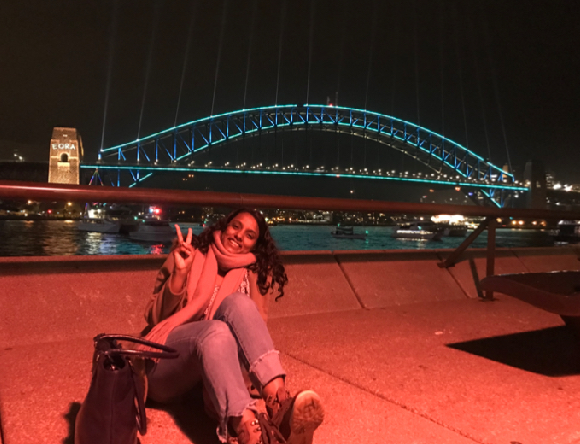

Body of IITR
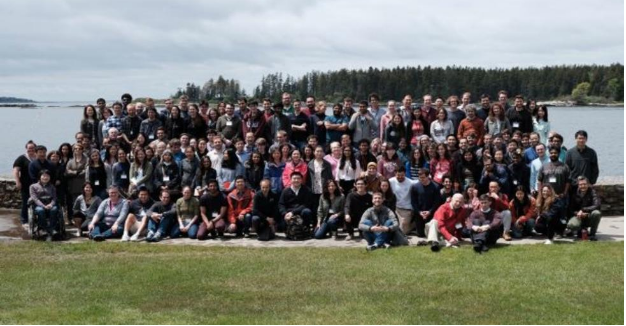
Be an exception, not an example that has always been my motivation in life. To begin on that note, I have spent my summer in the Department of Systems Biology, Harvard Medical School affiliated to Harvard University. These 10 weeks were an enriching experience for me where I not only learnt many new techniques and developed my skill set but also learnt to love science for its uniqueness all over once again. This internship journey taught me many things, gave me some good friends, taught me humbleness and how to live a life full of happiness in this competitive world by loving what you do. It taught me to derive pleasure from the smallest success and how to overcome the biggest of failures with a positive mindset. So without further ado, I will elaborate on my journey in this article.
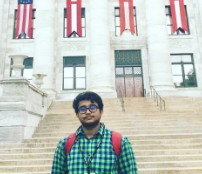
Internships are as important for the Master’s students as it is for the undergrads. There may be lots of difference between the visions of these two sections of our institute, but the journey of securing an internship brings all of them together. It is like a bridge between these two factions that bring them closer to each other. Just like the undergrads, I too was focussed on getting an internship in the summer during the first year of my course. As we have only two years in this institute, the time within which we have to complete our tasks here is comparatively less. So I was determined to give my best for this search. Although I had done three national internships during my Bachelor’s, at first I was a little confused about how to get a foreign internship. I did not know many people here with whom I could discuss about all these topics. However, fortunately I met a senior from the M.Sc Geology Department, Surjyendu Bhattacharjee, who was a talented individual and had gone to Caltech for his internship through S.N.Bose Scholars Program. He was a very helpful person and his vision really inspired me. From that day onwards, I decided to work hard not only for my academics but also for building up my internship experience in the upcoming summer.
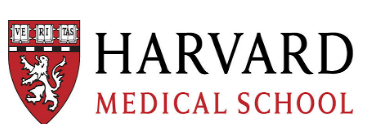
I had searched thoroughly the Internet, websites like Internshaala, Biotechnika,etc and found many internships but many of them had different restrictions, like you have be a undergrad, have an excellent CGPA, be in the second year of your study and likewise. Some of them had explicitly mentioned that Master’s students were not allowed to apply for the program. Still, I did not get demotivated and filtered my search and found 13 internships for which I could apply (including some where it was written that preference for the position would be given to the undergrad students). I prepared my statement of purpose, curriculum vitae, recommendation letters and no objection certificate from the concerned authorities. I had talked to different professors and they were willing to support my application. I would like to mention Prof Partha Roy and Prof Krishnan Mohan Poluri who had supported my endeavours throughout the year. On the other hand, I also started mailing professors who were working on the research field in which I was interested. I read some of their papers and the brief synopsis of their work and modified my Statement of purpose by giving it a professional look as much as possible. I had mailed around 35 professors around the globe who were working on different aspects of Synthetic Biology, ranging from developing genetic circuits, biofuels, targeted drug delivery, cancer treatment, reengineering microbes and studying neurodevelopmental processes using the complex network of circuits artificially developed. Before being accepted by my Professor at Harvard Medical School, I had three Skype meetings with the lab members, including him, and only after that they unanimously decided in favor of my application was I sent the offer letter. The day on which I received the offer letter will be one of the memorable days of my life. The postdoc mentor I was assigned was really impressed and told me in detail about the project that I would be working on during my internship. The project that I was given made me decide that this was the type of work that I was looking forward to do for my summer. Also to give a heads-up, I had an advantage in answering the questions asked to me because I had prior exposure to such kind of work during my previous internships.

Systems biology is the study of systems of biological components, which may be molecules, cells, organisms or entire species. Living systems are dynamic and complex, and their behavior may be hard to predict from the properties of individual parts. To study them, the researchers in the Department of Systems Biology at Harvard Medical School use quantitative measurements of the behavior of groups of interacting components, systematic measurement technologies such as genomics, bioinformatics and proteomics, and mathematical and computational models to describe and predict dynamical behavior. Systems problems are emerging as central to all areas of biology and medicine. The research interests there include developmental biology, synthetic biology, and spatio-temporal distribution of cellular components, pharmacology and cellular decision making. So, decided it was a best fit for me.
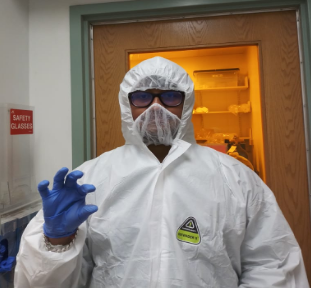
During my internship I was working on the growth patterns of Vibrio natriegens, which is becoming a model organism for fast growing bacteria with a reported doubling time of less than 10 minutes. I had to use a quantitative approach to characterize V.natrigens growth and physiology for the first part of my project. Then we had to optimize media and growth conditions with single-cell resolution using microfluidic chips, following which their growth was analyzed both at constant or changing conditions. For the latter part of the project, the work became more focussed and challenging for me. I was assigned the task of developing synthetic genetic circuits and establishing them in Vibrio natriegens which was a work for which no relevant literature was available. For that I had to thoroughly survey the literature available and develop my own idea, protocol and experimentation techniques. I had to optimize many protocols only after which I could work on the toggle switch and the dual feedback oscillator (famous synthetic genetic circuits). I had to establish them both in E.coli and Vibrio and study the oscillation frequency, switching speed, tunability, signal to noise ratio and develop parameters to smoothen the oscillations. After successfully establishing the circuits in Vibrio, we then decided to analyse them in microfluidic apparatus and perform single cell quantitative imaging to see the oscillations and toggling of the circuits and their corresponding expression at single cell level, quantitated by the level of fluorescent protein, i.e, GFP and mCherry production and degradation . Fortunately the circuits worked in Vibrio and produced significant results. Then we analyzed the change in the behavior of the circuits in different media to see in which type of conditions they showed optimal performance. On another part of the project, I worked closely with another co-intern in the lab and developed a promoter library of varying strengths and used dye barcoding techniques to segregate and identify them in microfluidic chips. Such type of promoter library creation and their quantitative classification based on their strengths will allow us to perfectly identify the set of promoters that we want to use for creating our varied genetic circuits. Optical trap and laser technology will be used to then selectively isolate the promoter we want to use for our purpose from the plethora of promoters being expressed in cells being run on the microfluidic chips. The lab has developed such techniques which has made it possible and will bring a revolution in the field of synthetic biology in the near future.

The work environment was extremely good at Harvard. Everyone is equally dedicated towards their work. Even at the lunch time, they discuss about new ideas and exciting research that is going on in the world. These discussions allow a person to gain knowledge about varied things in a small amount of time that took over a cup of coffee. No one demotivates you if you fail in your experiment. There were instances where things did not work out according to my plan and the experiment for the day did not produce desired results, but my postdoc mentor still motivated me and told me to not to worry about all these things. He repeatedly told me that failure is a part of science and without failure one can never expect to achieve success in life. I had amazing lab mates who were experts in theoretical, experimental and computational work and learnt something from each of them. Everybody was willing to help us in any way possible. I had an amazing co-intern and roommate beside me all the time, Piyush Nanda, a final year undergrad from IIT KGP, who cleared lots of my doubts and played a very important part in reshaping my scientific mindset for which I indebted to him. Both of us had a fun time learning, working in the lab, exploring new places, restaurants and going for short trips. The department arranged theory lunches, seminars, happy hours, discussion meetings and other recreational activities to allow the people to interact with each other. There were some brilliant undergrads visiting the department from throughout the world with whom I spent a wonderful time. The department also took us for a retreat to Maine along with the other people of the department where we had a wonderful time listening to lectures, going for hiking, boating, dinner table meetings and also most importantly dancing at the discotheque with all the faculties and students of the department. It was an excellent experience to see your faculties dance beside you in the party which showed me how well they can maintain a work life balance. All of these incidents have left an everlasting impression on me.

I had received replies from some of the faculties I had contacted and most of them appreciated my idea and expressed their interest towards hosting me in their lab. However, there were some problems regarding financial support, space crunch, and duration of the internship which prevented me from joining their labs. One of the best moments of my life when noble laureate, Jack Szostak replied back to my email and appreciated my idea but there being a space crunch in his lab I could not join his lab. However, these moments of happiness pushed me to keep on moving forward. I had then received acceptance letters from Max Planck Society of Plant Physiology, Genome Institute of Singapore, University of Saskatchewan (through Mitacs Globalink Fellowship Program), appreciation from EPFL@Life Sciences Internship Program Committee and Yale University. All of these internships were fully or partially funded by programs or the universities. My professor at Harvard offered me a hefty amount of stipend per month and apart from that I had also applied for the Travel Research Internship Scheme of IIT Roorkee for which I was selected and awarded an amount of Rupees One lakh. I am grateful to the institute to have provided me with the sum and I hope that I have been able to utilize the sum efficiently. The amount which I received was sufficient for the entire period of my internship and all the expenses were borne from those monetary support that I had received.
I would suggest every student to try their best to find a suitable position for themshelves during the summer and to use the opportunities they receive wisely. Failures will come throughout the process but I strongly recommend to not stop trying because only if you try hard will you achieve success, no matter whether it is securing an internship or something bigger in life.
Best of Luck!!!!!!!